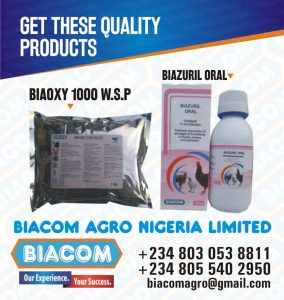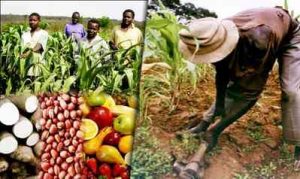Investment in Nigeria’s Agric Sector Not Safe – NIRSAL
Nigeria Incentive-Based Risk Sharing System for Agricultural Lending (NIRSAL) has said that investment in the agricultural sector of Nigeria’s economy is not safe, that what is needed to cushion the risk is a fixed, de-risked and integrated agricultural value chain with efficient and controlled route-to-market for commodities.
The Managing Director/ Chief Executive Officer, NIRSAL, Aliyu Abdulhameed, pointed this out to the authorities during a meeting with the Federal Ministry of Trade and Investment in Abuja.
READ ALSO: Guideline for the New CBN Private Sector-Led Accelerated Agriculture Development Scheme…
 Learn More
Learn MoreAbdulhameed, said the agric sector still requires massive financing, equipment, technology, and intellectual capital to enhance its growth following the food security objective of the nation, adding that this developments, would address about 50 percent post-harvest losses on some agricultural commodities which responsible for the significant loss of economic value of agric commodities.
He stated that even though the country was blessed with abundant opportunities in land, labour, water and markets, it remains, “food insecure” with about N1.5 trillion average annual food import bill and 94.6 million poor and malnourished people.
READ ALSO; Check Out the Bill and Melinda Gates $1.5m Agric Grants for Smart Farming
The Managing Director noted that agriculture currently accounts for 25 percent of the country’s GDP which was even as high as 42 percent before 2014 adding that “Inefficiencies inherent across agricultural commodity value chains make the sector highly unattractive for investment and the sector’s potentials highly under-maximised in Nigeria,”
To address the inefficiencies in the sector, he said that the planned implementation of the Secured Agricultural Commodity Transport and Storage Corridor (SATS-C), will help to effectively combat post-harvest losses, create jobs and boost the contribution of the agriculture sector to Gross Domestic Product (GDP).
READ ALSO: Nigerian Company, Brazilian Institute Partnered to Set up Centre for Animal Husbandry
SATS-C is a new initiative of NIRSAL that is aimed to address the supply-side and trade-related constraints of agricultural commodities in Nigeria by facilitating the movement of goods safely from the primary source to the domestic consumer, Industries, and Export market.
Abdulhameed said, when fully operational, the SATS-C policy could directly lead to a five percent increase in the agriculture sector’s contribution to GDP by halving annual post-harvest losses of $12 billion adding that the initiative will also complement and perfect one of NIRSAL’s business models/concepts known as PH-P3 (Primary Production & Harvest, Primary Processing, Primary Transportation and Primary Storage)
The PH-P3 is a business concept that ensures efficient production in the farms and optimum capture of value at harvest by enabling prompt evacuation of produce from farm-gates, and the subsequent haulage of commodities across the country through designated corridors and it was first introduced in December 2018 to fix key constraints confronting the transportation of agricultural produce and products across the country, working with both private and public sector stakeholders.
The Managing Director, however, called on all stakeholders and institutions driving necessary dialogues and championing advocacy to support the Federal Ministry of Industry, Trade and Investment, FMITI in the development and implementation of the SATS-C policy in Nigeria.
Click here to join World Farmers Centre Whatsapp group to get and read more articles like this
This News Post is Sponsored by BIACOM AGRO NIG LTD 
To Sponsor or Advertise through a News Post, contact Ola on 07082418202
















